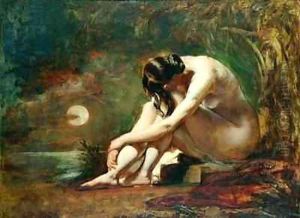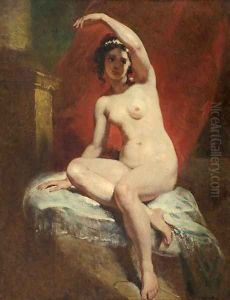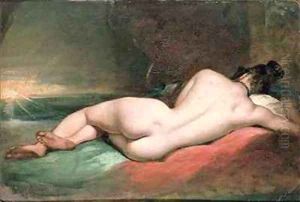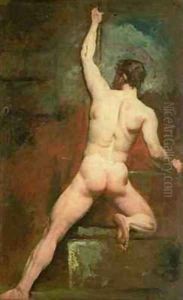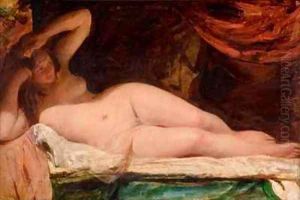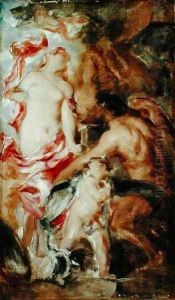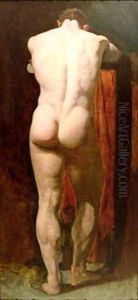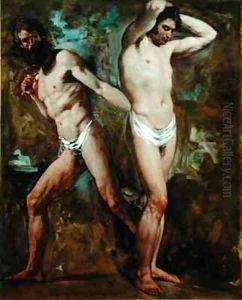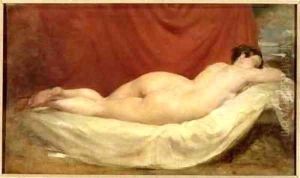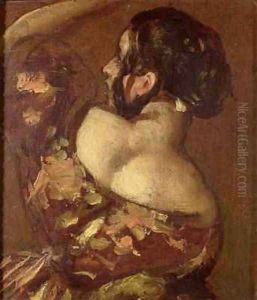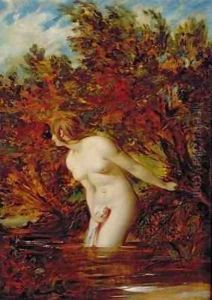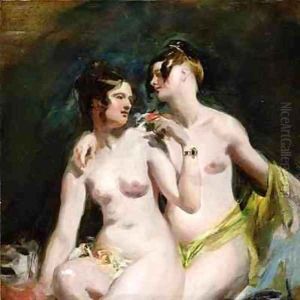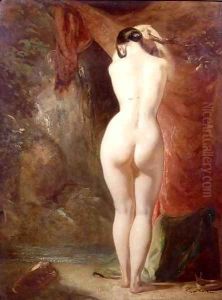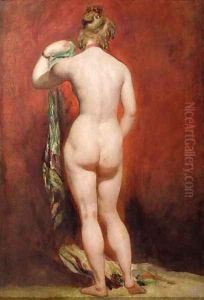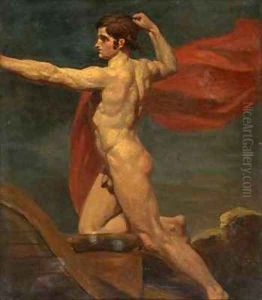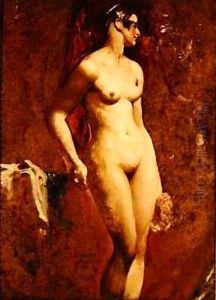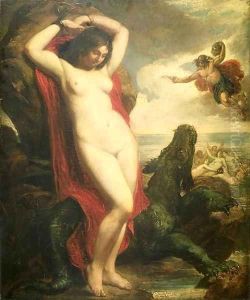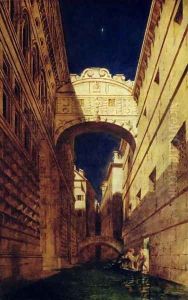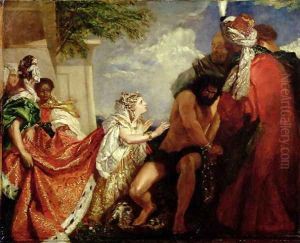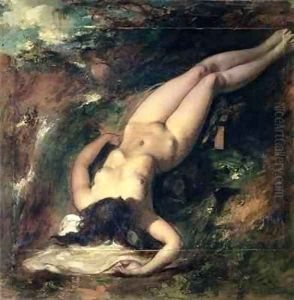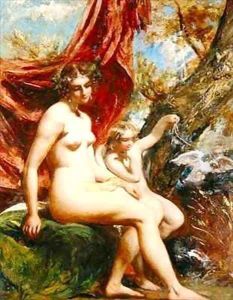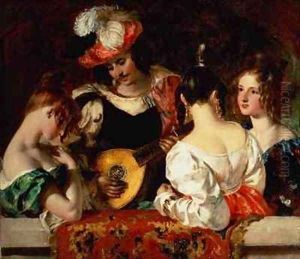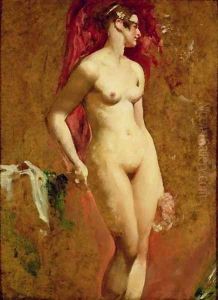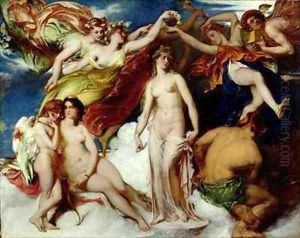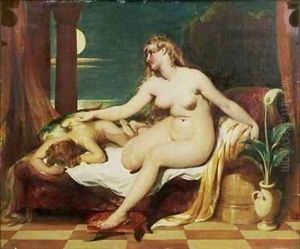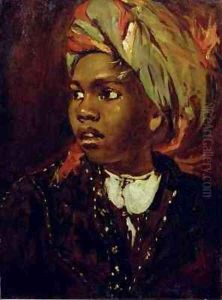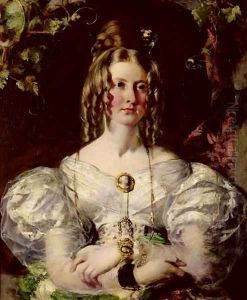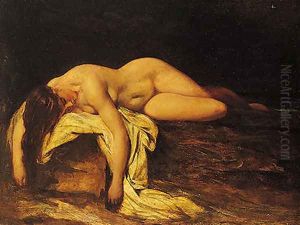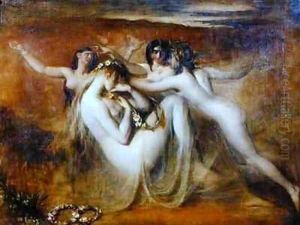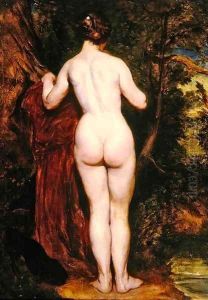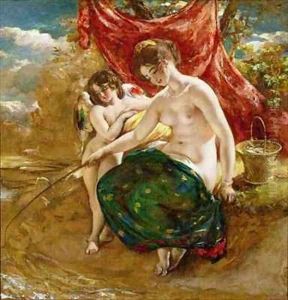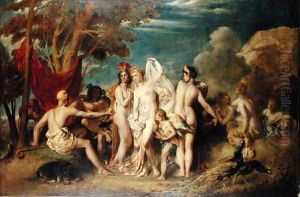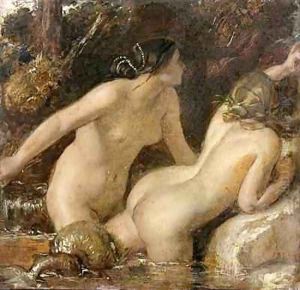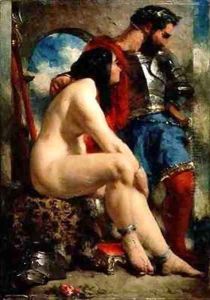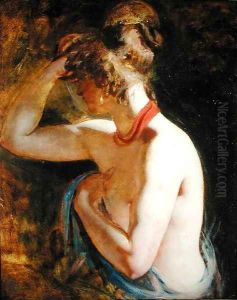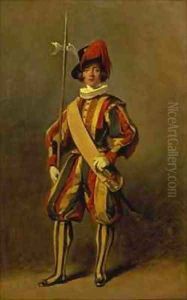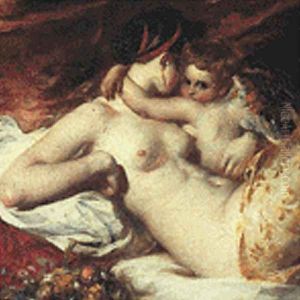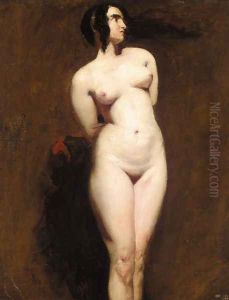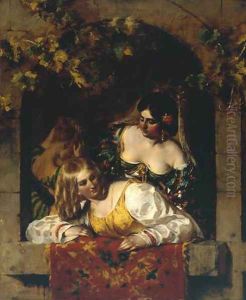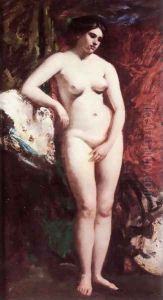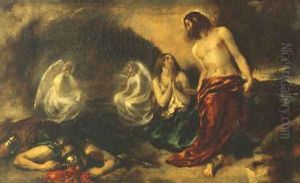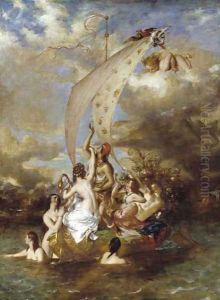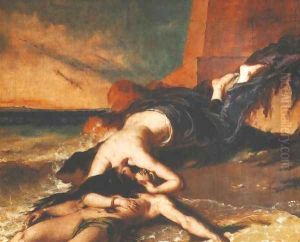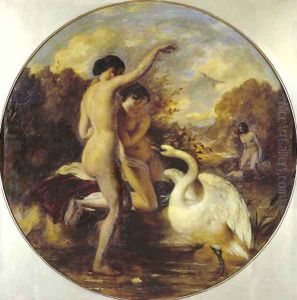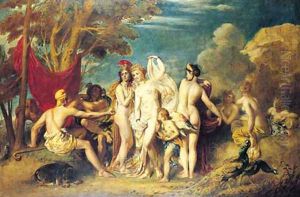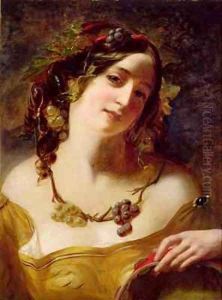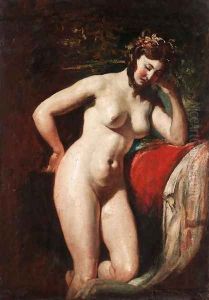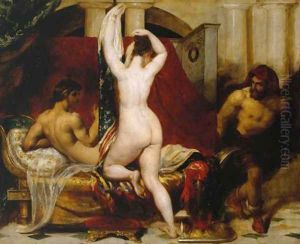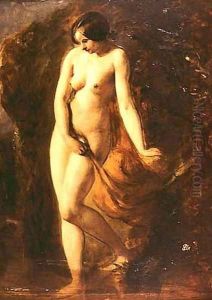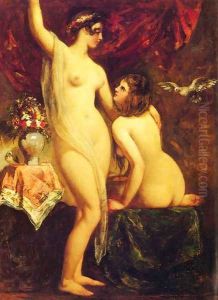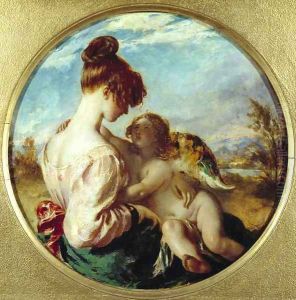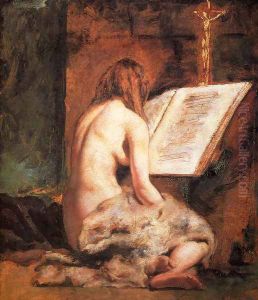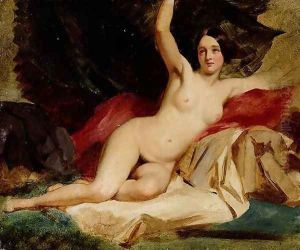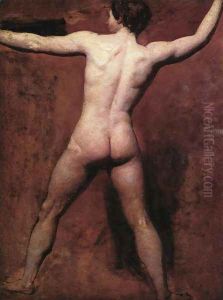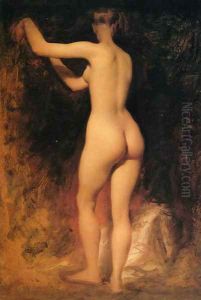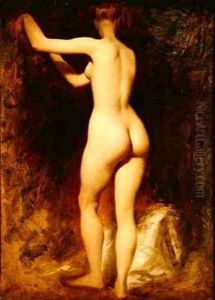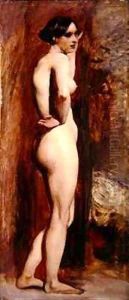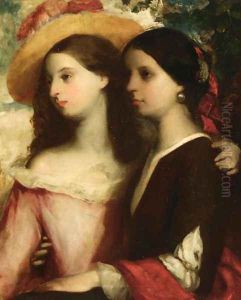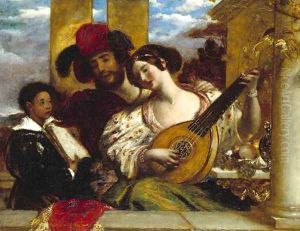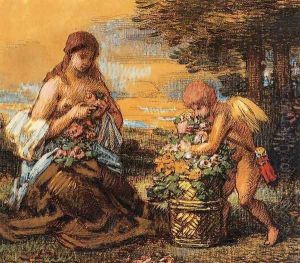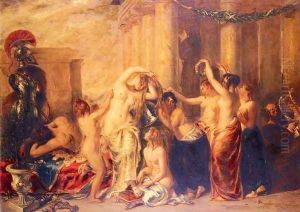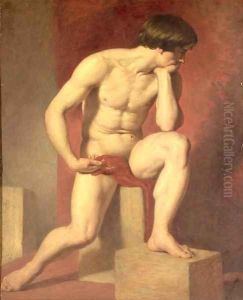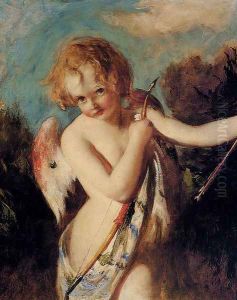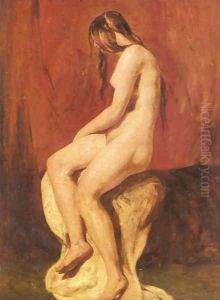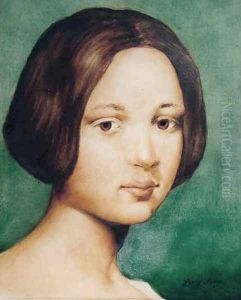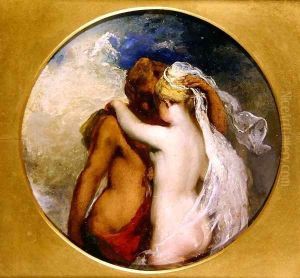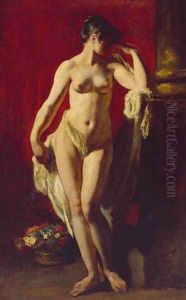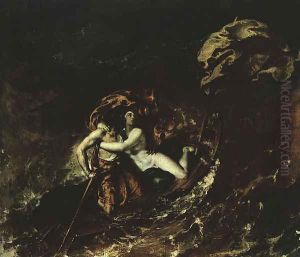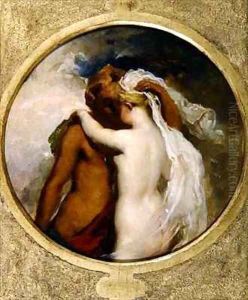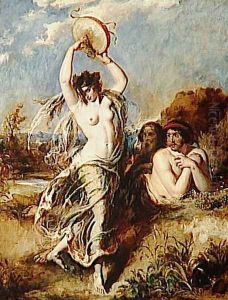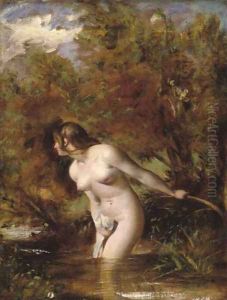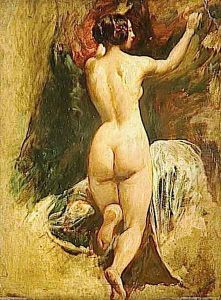William Etty Paintings
William Etty was born on March 10, 1787, in York, England, into a family of millers and bakers. Despite his modest upbringing, Etty developed a passion for art at an early age, inspired by the prints and drawings he encountered. His initial attempts at art were largely self-taught and derived from copying prints. In 1805, at the age of 18, Etty moved to London to pursue his artistic ambitions, where he managed to secure a position as an apprentice to the renowned history painter, Sir Thomas Lawrence. However, it was at the Royal Academy schools, which he joined in 1807, that Etty truly began to hone his skills, drawing from live models and studying classical statues.
Etty's early career was marked by struggle and financial insecurity. His works initially received little recognition, and he was forced to take on menial jobs to support himself. It was not until the 1820s that Etty began to gain significant attention, with his large-scale historical and mythological paintings. These works were notable for their vivid coloration and meticulous attention to detail, particularly in the depiction of the human form. Etty was particularly fascinated with the female nude, a subject that he explored extensively in his work, leading to both acclaim and controversy. His painting 'The Coral Finder: Venus and her Youthful Satellites' (1820), depicting the goddess Venus surrounded by nudes, exemplified his bold approach to the subject matter and marked a turning point in his career.
Despite his success, Etty's focus on the nude was met with mixed reactions. While some praised his mastery of the human form and his ability to convey beauty and sensuality, others criticized his work as indecent. This controversy did not deter Etty; if anything, it fueled his artistic endeavors. He believed in the educational value of art and advocated for the importance of studying the nude to understand human anatomy and convey emotion. His commitment to this principle was evident in his later works, such as 'The Sirens and Ulysses' (1837), which showcased his skill in rendering the human body and his rich, luminous palette.
Throughout his career, Etty remained a staunch advocate for the arts, particularly the importance of academic training and the study of the nude. He was elected a full member of the Royal Academy in 1828, recognition of his contributions to British art. In the later years of his life, Etty returned to York, where he continued to paint until his death on November 13, 1849. His legacy is complex; while he was one of the most prominent painters of his era, his focus on the nude has continued to provoke debate. Nonetheless, Etty is remembered for his technical skill, his vibrant use of color, and his unwavering commitment to his artistic principles.
